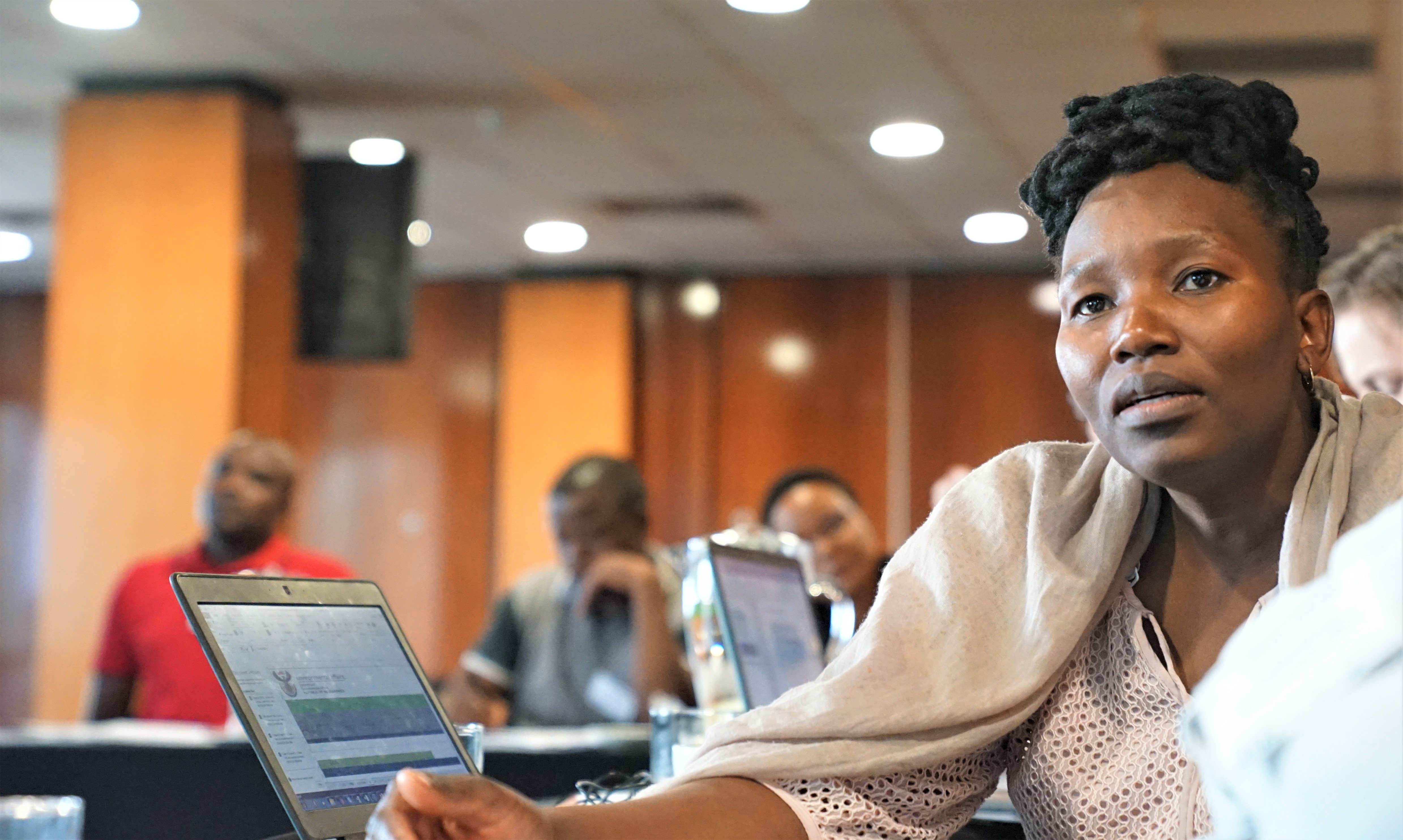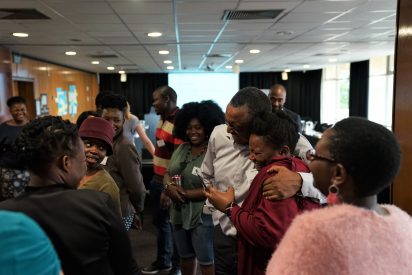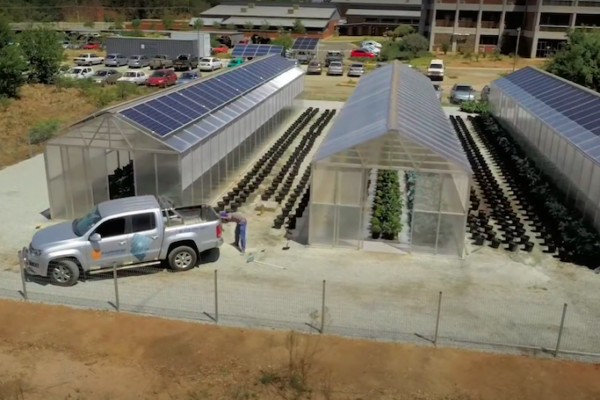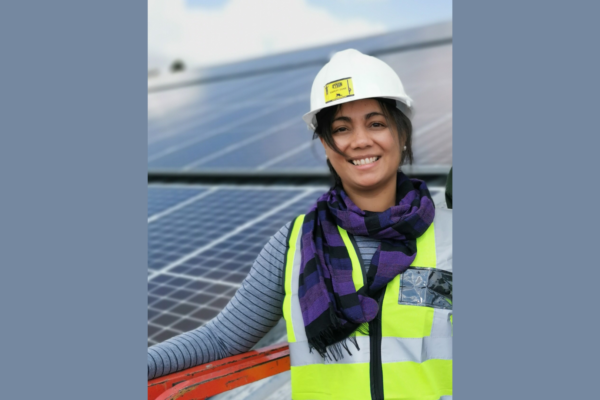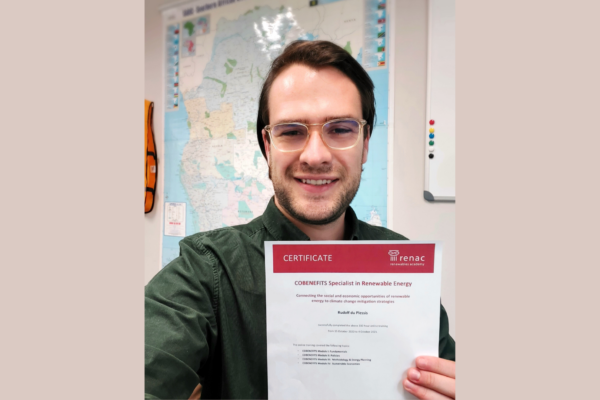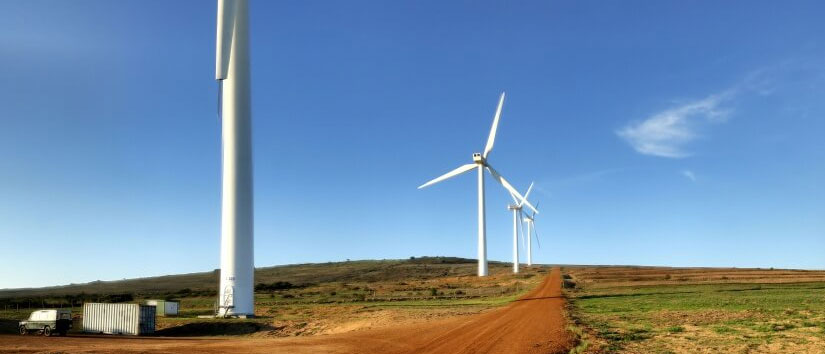
COBENEFITS Studies in South Africa
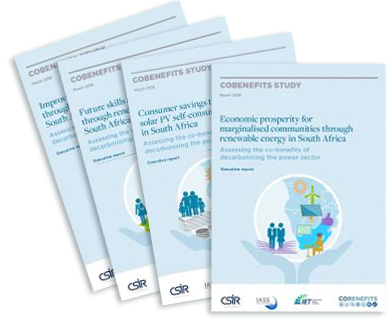
- From coal to renewables in Mpumalanga
- Barriers and Opportunities for women in South Africa’s energy transition
- Consumer savings through solar PV self-consumption in South Africa
- Improving health and reducing costs through renewable energy in South Africa
- Future skills and job creation through renewable energy in South Africa
- Economic prosperity for marginalised communities through renewable energy in South Africa
COBENEFITS Policy Reports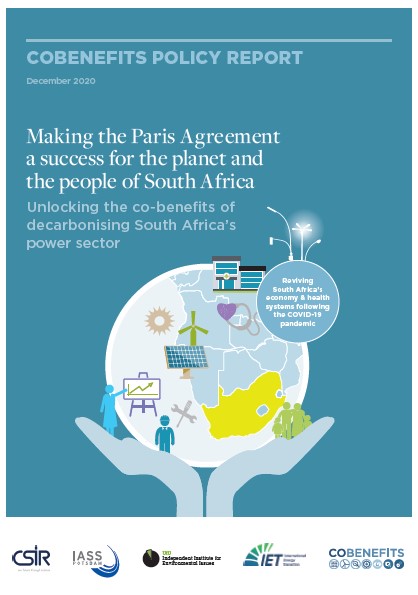
The Policy Report compiles key findings from our assessments and formulates policy actions to harness the social and economic co-benefits of renewables.
More on South Africa
Main study results
The studies show how the implementation of renewable energy resources can have a positive impact on consumer savings, health, job creation and economic prosperity.
Consumer savings
South Africa has a tremendous potential for rooftop solar PV. In the metropolitan municipalities alone, rooftop solar PV has an economic potential of 15 GW between now and 2030. But not only does solar energy revolutionise the energy system, it also affects the consumer savings positively. South African households and businesses can save money by investing in solar: annual savings for the residential sector alone sum up to around R12.8 billion.
Health
In South Africa, up to 44 million people are exposed to air pollution from coal power plants. Health costs related to coal emissions will peak in 2022, at up to R45 billion in that year alone. As many as 2080 premature deaths annually were predicted due to air pollution from power plants in South Africa. Health costs can be reduced significantly by increasing the share of renewables. In absolute terms, up to R12.7 billion (upper estimate) and at least R3.8 billion (lower estimate) will be unburdened from health costs by the year 2035.
Job creation
South Africa has an abundance of renewable energy resources. This opens up new opportunities for current coal sector employees and other job seekers. South Africa can significantly boost employment by increasing the share of renewables. Employment can be expected to increase by an additional 40 % in the period 2018 to 2030, accounting for 580,000 job years.
Economic prosperity for marginalised communities
South Africa’s renewable energy procurement policy is globally unique as it focusses on projects that are primarily located in rural communities, frequently categorised as “marginalised communities”. These marginalised communities can benefit regarding socio-economic development and enterprise development. Until the year 2050, 10 000 local jobs can be created in marginalised communities. In the same time frame, more than 3000 local enterprises in marginalised communities can be supported. These developments would have an impact on education: Up to 30 000 individuals in marginalised communities could benefit from access to education-related programmes.
COBENEFITS Council Members in South Africa
- Department of Environmental Affairs (DEA)
- Department of Energy (DoE)
- Department of Trade and Industry (DTI)
- Department of Science and Technologies (DST)
- IPP Office
COBENEFITS Focal Point in South Africa
The Pretoria-based Council for Scientific and Industrial Research’s (CSIR) Energy Centre (EC) was established in 2014 with the aim of providing science-based outputs that help South African decision-makers in politics, business and science to navigate the energy transition. This transition is a move towards a more sustainable and cleaner energy system and will ultimately lead to energy being used more efficiently and generated by a significant share of renewables in the primary energy supply. The CSIR’s Energy Centre will also leverage the lessons learned from the South African energy transition to support the creation of sustainable energy systems for other African countries.
Making renewables a success for the people in South Africa, enabling a just transition and recovering from the impacts of COVID-19: The video presents key findings from assessments on co-benefits of renewables for health, consumer savings, employment, and economic prosperity for marginalised communities in South Africa.










